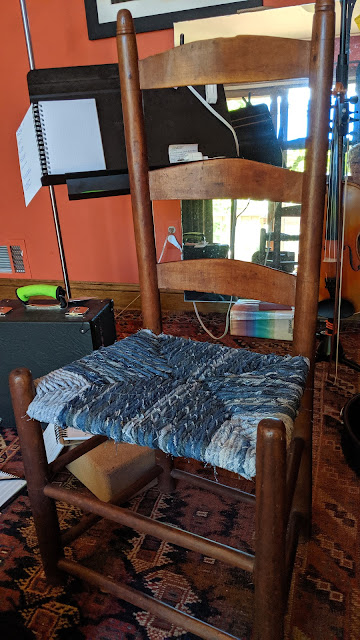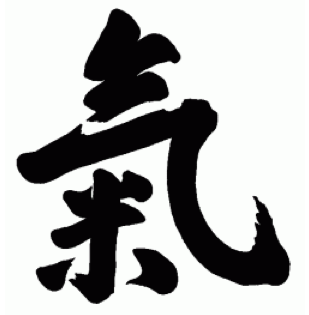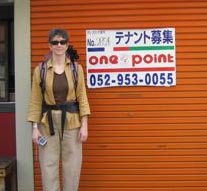Getting Off the "OK Plateau" - Breaking Through Walls in Your Practice
Joshua Foer, author of Moonwalking with Einstein, gave a talk on 99u about the techniques that experts use to become great at what they do. As a martial artist and musician, I'm always looking for ways to improve and to practice more efficiently.
The OK Plateau
In 1967 a much-cited textbook was written about how people acquire skills. The authors said that we go through three phases. Think of the way we learn to ride a bicycle, learn to type, or drive:
Foer calls the third phase "The OK Plateau." It's fine to reach a plateau when I'm OK at typing or driving, but not when I'm practicing something I want to continually improve.
Psychologists have found a set of principles that are used by experts in many fields, that help explain why when these experts practice, they get better, whereas when others practice, that's not always the case!
Get Out of Your Comfort Zone, Then Study How You Fail
Experts try to keep from "turning on autopilot" by working outside their comfort zone whenever possible. They challenge themselves, spending most of their time working on things that are difficult, not the things that are easy or comfortable. Then they study what is making them fail. I've found this allows me to examine what is slowing me down or making me fumble? Where do I introduce unnecessary tension? What is going through my mind to hold me back?
I have seen my aikido sensei, Shuji Maruyama, challenge himself continually in this way. He trains against big, American attackers. He actually teaches them how to resist him (and then throws them anyway). He's developed responses to modern attacks, like backfists and kicks, that are not in the traditional aikido vocabulary.
Study the Greats
The best chess players study the games of the masters. Musicians study recordings. Great apps like Amazing Slow Downer let musicians slow down and loop sections, so we can hear and imitate each nuance. Analyze, take things apart, question: "Why did this person decide to do exactly this at this time?"
Treat Your Practice Like a Science
Take notes on your training: what you're doing, what works or doesn't work. Experts develop theories and test them. What is the most productive time of day for you to practice? What is the best length for your practice sessions? Can you test your theory? Is there a way you can quantify your results?
Sensei approaches Kokikai Aikido like a science. He says "the same person, under the same conditions" can make one small change that makes the difference between throwing and not throwing. Sensei spends many hours studying video of himself. He consults with and studies other great martial artists and fighters. Then he tries their ideas. If he finds a Kokikai Aikido technique lacking or wanting, he changes it or sometimes even removes it from the curriculum.
You Will Thrive on Immediate, Constant Feedback
Here's an example of effect of not getting feedback: You'd think that radiologists who screen mammograms for breast cancer would get better at detecting cancer as they get more experience. But overall, they don't. Researchers think it's because, compared to other radiologists, mammographers don't find out right away whether their diagnosis was correct - sometimes it's weeks, months, and many times they never know.
It's not always easy to get feedback that you trust. A great teacher is invaluable. Recording or videotaping yourself is also a great tool. After the initial "cringe factor" wears off, you'll be able to see or hear things that were not evident when you were "in the moment."
Coda
I was not surprised to find that my Sensei practices all the techniques used by experts in other fields. He has dedicated his life to continually growing in his mastery of aikido, and he has not been constrained by concepts of what "should" be possible.
Sensei jokes with his high ranking students that we're no longer "climbing the mountain," but circling somewhere around the bottom. He knows that he has to cajole, push and prod us out of our comfort zones so we, too, will get off the OK Plateau and keep climbing.
The OK Plateau
In 1967 a much-cited textbook was written about how people acquire skills. The authors said that we go through three phases. Think of the way we learn to ride a bicycle, learn to type, or drive:
- Cognitive Phase - We devote a lot of mental energy to the skill, thinking about the tasks, discovering new ways to do better
- Associative Phase - We start to feel that we're improving, we make fewer errors
- Autonomous Phase - This is when we decide we're competent. We "turn on autopilot," doing a lot of the tasks without a lot of cognitive thought.
Foer calls the third phase "The OK Plateau." It's fine to reach a plateau when I'm OK at typing or driving, but not when I'm practicing something I want to continually improve.
Psychologists have found a set of principles that are used by experts in many fields, that help explain why when these experts practice, they get better, whereas when others practice, that's not always the case!
Get Out of Your Comfort Zone, Then Study How You Fail
Experts try to keep from "turning on autopilot" by working outside their comfort zone whenever possible. They challenge themselves, spending most of their time working on things that are difficult, not the things that are easy or comfortable. Then they study what is making them fail. I've found this allows me to examine what is slowing me down or making me fumble? Where do I introduce unnecessary tension? What is going through my mind to hold me back?
I have seen my aikido sensei, Shuji Maruyama, challenge himself continually in this way. He trains against big, American attackers. He actually teaches them how to resist him (and then throws them anyway). He's developed responses to modern attacks, like backfists and kicks, that are not in the traditional aikido vocabulary.
Study the Greats
The best chess players study the games of the masters. Musicians study recordings. Great apps like Amazing Slow Downer let musicians slow down and loop sections, so we can hear and imitate each nuance. Analyze, take things apart, question: "Why did this person decide to do exactly this at this time?"
Treat Your Practice Like a Science
Take notes on your training: what you're doing, what works or doesn't work. Experts develop theories and test them. What is the most productive time of day for you to practice? What is the best length for your practice sessions? Can you test your theory? Is there a way you can quantify your results?
Sensei approaches Kokikai Aikido like a science. He says "the same person, under the same conditions" can make one small change that makes the difference between throwing and not throwing. Sensei spends many hours studying video of himself. He consults with and studies other great martial artists and fighters. Then he tries their ideas. If he finds a Kokikai Aikido technique lacking or wanting, he changes it or sometimes even removes it from the curriculum.
You Will Thrive on Immediate, Constant Feedback
Here's an example of effect of not getting feedback: You'd think that radiologists who screen mammograms for breast cancer would get better at detecting cancer as they get more experience. But overall, they don't. Researchers think it's because, compared to other radiologists, mammographers don't find out right away whether their diagnosis was correct - sometimes it's weeks, months, and many times they never know.
It's not always easy to get feedback that you trust. A great teacher is invaluable. Recording or videotaping yourself is also a great tool. After the initial "cringe factor" wears off, you'll be able to see or hear things that were not evident when you were "in the moment."
Coda
I was not surprised to find that my Sensei practices all the techniques used by experts in other fields. He has dedicated his life to continually growing in his mastery of aikido, and he has not been constrained by concepts of what "should" be possible.
Sensei jokes with his high ranking students that we're no longer "climbing the mountain," but circling somewhere around the bottom. He knows that he has to cajole, push and prod us out of our comfort zones so we, too, will get off the OK Plateau and keep climbing.




Nice article. I wonder if you have read Mastery: http://www.amazon.com/Mastery-Keys-Success-Long-Term-Fulfillment/dp/0452267560/ref=sr_1_3?s=books&ie=UTF8&qid=1417094900&sr=1-3&keywords=mastery
ReplyDeleteI found many similar things in this book too. Interesting note the author here is an Aikidoka as well.
I will check that out, Bill! I've read George Leonard before, really good stuff.
ReplyDelete